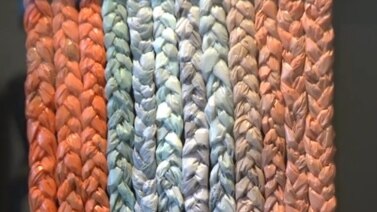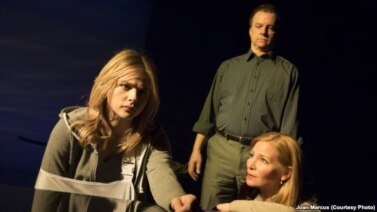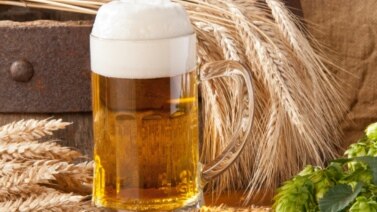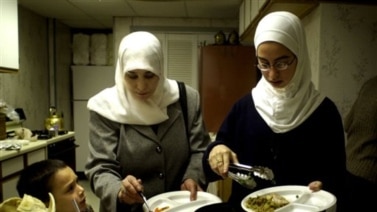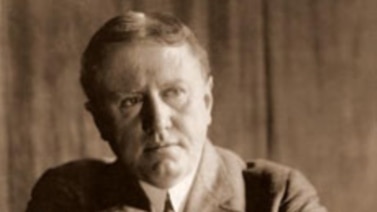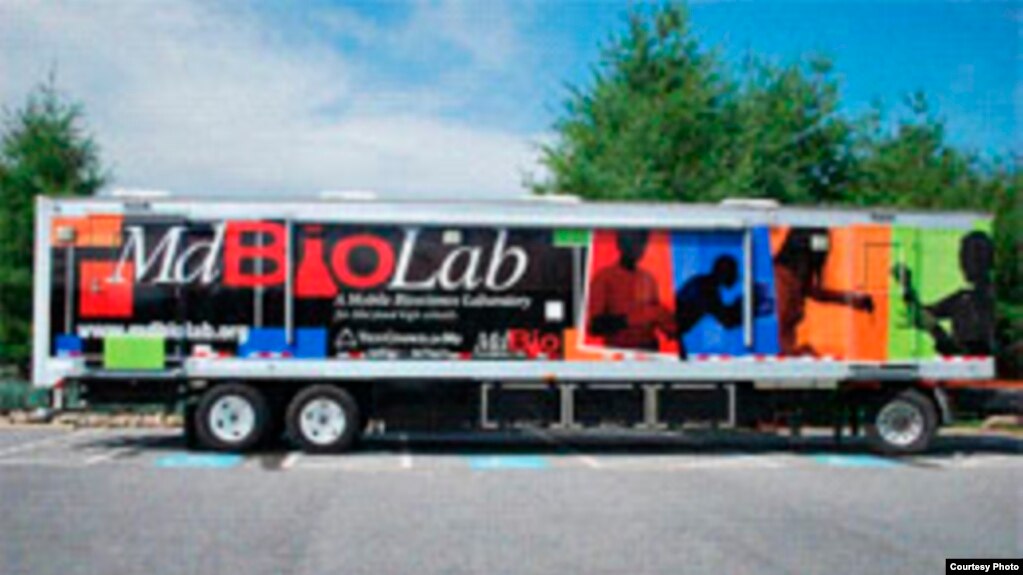
Welcome to American Mosaic from VOA Learning English.
I’m June Simms.
If you were a high school student how would you like to learn about science? Would you want to sit in a class looking at pictures in a textbook or working on a computer? Or would you like to perform experiments in a modern laboratory with help from real scientists?
Students in one American state are doing that now. Steve Ember reports.
Most schools in America do not have the latest in laboratory equipment. It is just too costly. But the eastern state of Maryland and a non-profit group found a way to make such equipment available during some parts of the school year -- they put it on a bus!
The 13-meter-long Maryland BioLab is a mobile classroom filled with equipment that lets students explore many kinds of science. It travels around the state visiting schools. Today the bus has stopped at Patapsco High School and Center for Arts in the city of Baltimore. Science teacher Leah Warble is very pleased that her students could perform an experiment using real chemicals.
“Today the chemistry students were able to do an acid-based hydration, which means they neutralize an acid with a base. Normally, they would do it through simulations on the computer. And now the BioLab is allowing them to do it in real life, actual time and actually apply it to something we use in real life, which is biodiesel.”
Scientist Angel Mangus led the mobile laboratory on the day VOA visited.
“There are two TVs, there is one down this end and one down that end. If you get lost at any point in time on your paper or what I am saying and you cannot see me, I have a camera. So I will do everything along with you. I will fill out the paper with you…”
Ms. Mangus says the equipment lets students explore many different kinds of scientific interests.
“We have everything from biology to forensic science. So we have a blood lab where they go ahead and test if any of the evidence samples had blood on it. We also have DNA analysis lab where they are trying to test and see who did a specific crime. And we also have chemistry.”
The mobile lab has been bringing bioscience education to schools around Maryland for more than 10 years.
“It is really nice to get them in here with hands-on activities. They get really excited and want to be engaged.”
Ms. Mangus talks to the students about how she became a scientist.
“At the end of each class, if we have enough time, we like to take five, ten minutes and talk about us, ourselves. We tell them how we got into science, maybe where we went to school, what we did, the different kinds of things we could do.”
She says many students finish their experiments and leave the bus excited about the possibility of becoming a scientist.
The Maryland BioScience Foundation supports the BioLab program. Brian Gaines is the chief executive officer of the foundation. He says the organization’s goal is to help create the next generation of scientists.
“We use this program to talk about careers in science, not only science, but science, technology, engineering and math.”
Mr. Gains says students on the bus get real-life experience they do not get in a classroom.
“The equipment that students use on the mobile lab, they do not have in schools. Our instructors are actually scientists, they work alongside the teachers. They bring that science experience from the laboratory into the schools and teach the students how to use the newest techniques that we have in science.”
That made a difference to 15-year-old Seda Sinan, who is interested in biology.
“It gave me more materials to work with than what I have at school. It is, like, more interactive.”
Her classmate Shenara Jefferson agrees.
“Well, it really showed me how just a little bit of difference can really impact your product when you are doing something in there. Like I only added just a little bit of the solution and it completely affected my entire thing.”
Back in the school classroom, Leah Warble’s students continue working on the results of their experiments on the bus.
“It does help me do my job.”
Ms. Warble says children usually do not know what they are interested in until they get real-life experience with a subject.
“Well, the excitement of feeling like a real scientist, even just a change in what they are wearing, wearing goggles and blue gloves versus white gloves made them feel more like television scientists, if you will. Being allowed to handle this kind of situation makes them more responsible for the work because they are now intrigued in doing it and they feel respected and responsible since we have them those opportunities.”
